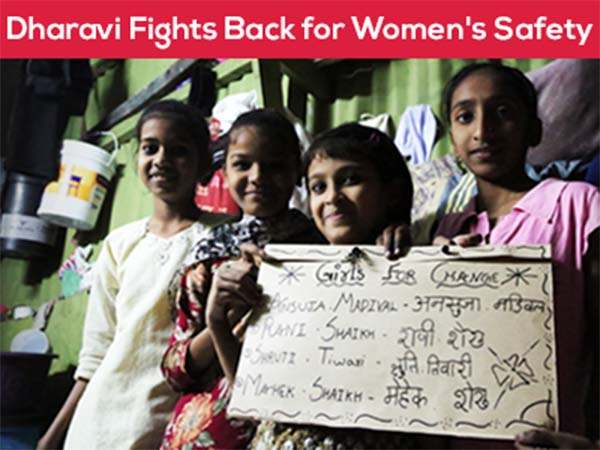
In 2012, Nawneet Ranjan made a documentary Dharavi Diary and he went back to US. However, for Nawneet it was not just a film , as he very well got connected with people of Dharavi and he said “It was not done on my part; I sharing their stories but not helping them, it’s not fair to just share the stories without empowering the community”. In January 2014, he decided to go against the tide by leaving the comfort of a developed world and plunged into a slum innovation project at Dharavi to make a difference in the lives of the people there.
Most of us who haven’t visited Dharavi have blinkered view about it reflecting the disdain of urban people for slums.When asked Nawneet about his perspective on Dharavi, he said, “People of Dharavi have a drive in them. Here, a mother skips her one meal so she can send her child to school! The economic disparity and their circumstances are such that they are stuck up in a cycle of poverty. Approximately 54% people of Mumbai living in slum help many industries and professionals to make their routine life easier, we need to start a dialogue where they can be included in urban socio-cultural and economic development process.”
Nawneet Ranjan started an uphill battle for slum innovation by setting up a Technovation Design Studio initially with his own investment and later on he got help from friends and family members. At Technovation Design Studio, girls of Dharavi are trained for Technovation challenge, which is a competition with the motive to involve more girls and women in the process of technological innovation. As number of girls, interested in process are increasing, the resource constraint is one of the major challenge to deal with.
got help from friends and family members. At Technovation Design Studio, girls of Dharavi are trained for Technovation challenge, which is a competition with the motive to involve more girls and women in the process of technological innovation. As number of girls, interested in process are increasing, the resource constraint is one of the major challenge to deal with.
On being asked about the idea of making the app “Women Fight Back” Nawneet said, after making the documentary – Dharavi Diary he started teaching kids, arranging workshops and conducted brainstorming sessions with them. During one of the brainstorming session, issue of girls’ security while going out alone in evening was raised, as for their safety they are restricted from leaving home in evening and for some of the parents the solution was getting their daughters married off at very young age which hinders the prospect of education and empowerment for those girls. Further, the obstacle was if some teasing or assault happened with them, then that couldn’t be discussed amicably at home. So, the girls who were Dharavi residents; Ansuja, Kusum, Mahek, Rani and Shruti themselves decided to develop an app “Women Fight Back” with the help of an MIT tutorial at Technovation Design Studio.
While sharing their App development experience, the ‘Girls for Change’ told it was fun to develop an app using MIT tutorial. As the Technovation Design Studio was nearer to their home, they could easily go over there and work on app during their free time after reaching home from school.
The features of this app are late night safety, call 5 persons, location tracking and instant SMS. The unique feature of the app is “Distress Call” which makes loud screaming sound when a woman is in need of help. In Ansuja’s word, “our app will have an impact, it will decrease violence against women, molestation and rape. Women can move freely during day and night.” When she discussed the same with her mother, her mother was so happy and surprised to learn about her daughter’s achievement.
Apart from women fight back, ‘Dharavi Girls’ Fauziya Ansari, Fatima Ansari, Sheetal and Sudha delevoped an app called “Pani Hai Jeevan” to manage the queue at water tap.
The ‘Rock On girls’ of Dharavi Roshani Shaikh, Sapna Telunga, Kiran Verma, Kavita developed “Padhai Mera Hak” to address the illiteracy issue of school drop outs and for those girls who got married at very young age and couldn’t complete their education. When the girls were asked about their future plan, they said “We have made good apps, we will make something new in future, and we are excited as many other girls are also joining .We are the change makers of the future, we will bring change to our community.”





,